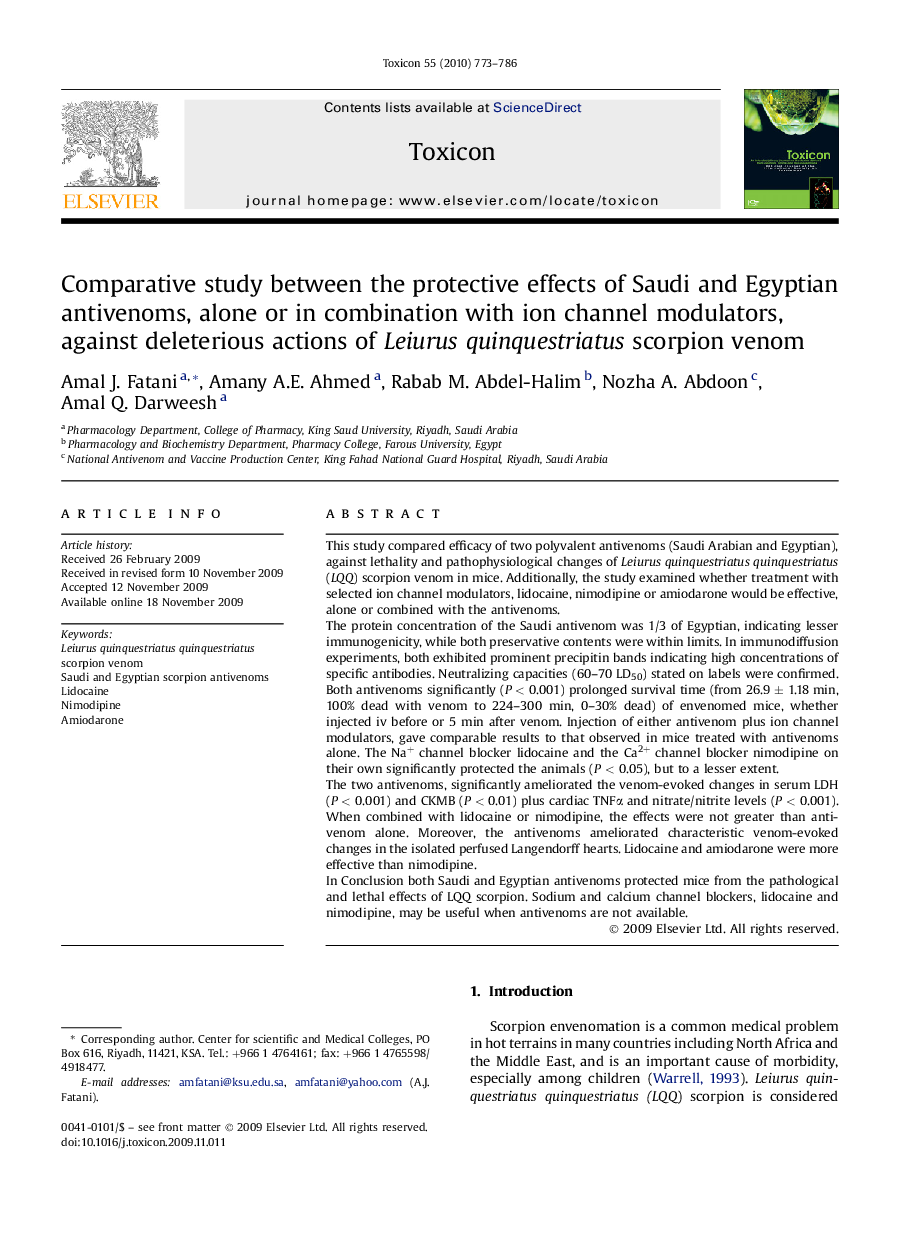| Article ID | Journal | Published Year | Pages | File Type |
|---|---|---|---|---|
| 2065246 | Toxicon | 2010 | 14 Pages |
This study compared efficacy of two polyvalent antivenoms (Saudi Arabian and Egyptian), against lethality and pathophysiological changes of Leiurus quinquestriatus quinquestriatus (LQQ) scorpion venom in mice. Additionally, the study examined whether treatment with selected ion channel modulators, lidocaine, nimodipine or amiodarone would be effective, alone or combined with the antivenoms.The protein concentration of the Saudi antivenom was 1/3 of Egyptian, indicating lesser immunogenicity, while both preservative contents were within limits. In immunodiffusion experiments, both exhibited prominent precipitin bands indicating high concentrations of specific antibodies. Neutralizing capacities (60–70 LD50) stated on labels were confirmed. Both antivenoms significantly (P < 0.001) prolonged survival time (from 26.9 ± 1.18 min, 100% dead with venom to 224–300 min, 0–30% dead) of envenomed mice, whether injected iv before or 5 min after venom. Injection of either antivenom plus ion channel modulators, gave comparable results to that observed in mice treated with antivenoms alone. The Na+ channel blocker lidocaine and the Ca2+ channel blocker nimodipine on their own significantly protected the animals (P < 0.05), but to a lesser extent.The two antivenoms, significantly ameliorated the venom-evoked changes in serum LDH (P < 0.001) and CKMB (P < 0.01) plus cardiac TNFα and nitrate/nitrite levels (P < 0.001). When combined with lidocaine or nimodipine, the effects were not greater than antivenom alone. Moreover, the antivenoms ameliorated characteristic venom-evoked changes in the isolated perfused Langendorff hearts. Lidocaine and amiodarone were more effective than nimodipine.In Conclusion both Saudi and Egyptian antivenoms protected mice from the pathological and lethal effects of LQQ scorpion. Sodium and calcium channel blockers, lidocaine and nimodipine, may be useful when antivenoms are not available.
